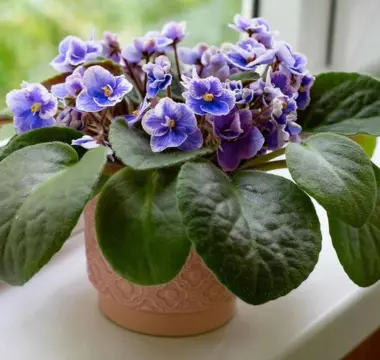
During pregnancy, creating a safe and healthy environment is essential for both the mother and the growing baby. While many factors contribute to a healthy indoor space, incorporating indoor plants can significantly improve air quality, reduce stress levels, and enhance overall well-being. In this article, we will explore the best indoor plants during pregnancy that are safe and beneficial. Let’s dive in and discover the natural wonders that can enhance your indoor environment.
What are the Benefits of having Indoor Plants during Pregnancy?

Indoor plants can provide numerous benefits during pregnancy, including:
- Reducing stress levels: Studies have shown that indoor plants can help reduce stress levels by lowering heart rate and blood pressure.
- Improving air quality: Indoor plants can help purify the air by removing toxins and pollutants, which can be especially beneficial for pregnant women who may be more sensitive to these substances.
- Boosting mood: Caring for indoor plants can have a therapeutic effect and may help improve mood and lessen the severity of depression.
- Adding humidity to the air: Some indoor plants, such as Boston Fern and Spider Plant, can help add humidity to the air, which can be beneficial for pregnant women who may experience dry skin and nasal passages.
What Are Best Indoor Plants During Pregnancy?
As an expectant mother, you may be wondering which indoor plants are safe to have around during pregnancy. It’s crucial to choose plants that are non-toxic, low-maintenance, and provide optimal health benefits. Here are some of the best indoor plants during pregnancy to consider:
Bromeliad

This plant is known for its air-purifying properties, as it can effectively remove harmful pollutants from the air. This is particularly beneficial during pregnancy when maintaining good air quality is important for the health of both the mother and the baby. Additionally, bromeliads are known to release oxygen and absorb carbon dioxide at night, which can help improve sleep quality.
African Violet

This flowering plant has been found to have stress-reducing properties. Pregnancy can be a stressful time for women, and having African Violets around can create a calming and soothing environment. The vibrant purple flowers of African Violets can also help uplift the mood and bring a sense of joy and tranquility.
Boston Fern

This plant is highly effective in removing toxins from the air, such as formaldehyde, which can be emitted by certain household products and furniture. Formaldehyde exposure should be minimized during pregnancy, as it is a known respiratory irritant and can have adverse effects on fetal development. Boston Ferns also release moisture into the air, increasing humidity levels and helping to combat dryness, which is beneficial for respiratory health.
Spider Plant

Spider plants are renowned for their ability to purify indoor air by absorbing harmful pollutants like formaldehyde, benzene, carbon monoxide, and xylene. These pollutants can be present in various household items, including paints, adhesives, and cleaning products. Removing these pollutants is crucial for maintaining a healthy environment during pregnancy. Spider plants are low-maintenance and easy to grow, making them an excellent choice for beginners.
Jasmine

This fragrant flowering plant has a soothing and calming effect on the mind and body. It can help reduce stress, anxiety, and promote relaxation, which is particularly beneficial during pregnancy when hormonal changes and emotional fluctuations are common. Jasmine’s aroma has been found to have sedative properties, aiding in better sleep quality. Improved sleep can contribute to overall well-being and support the body’s healing processes.
It is important to note that some plants can be toxic to pets, so if you have pets in your home, be sure to choose plants that are safe for them as well.
What are some Indoor Plants that are Easy to Care for during Pregnancy?
If you are pregnant and looking for indoor plants that are easy to care for, here are some options:
- Thyme: This herb grows happily indoors and requires full sunlight and well-drained soil.
- Rosemary: This herb also grows well indoors and requires well-drained soil and moderate sunlight.
- Sage: This herb is easy to grow indoors and requires well-drained soil and moderate sunlight.
- Mint: This herb is easy to grow indoors and prefers bright, indirect sunlight and moist soil.
- Parsley: This herb is easy to grow indoors and requires well-drained soil and moderate sunlight.
- Boston Fern: This plant is great for purifying the air and adding humidity to your home. It is easy to care for and safe for pregnant women.
- Spider Plant: This plant is easy to care for and can help remove toxins from the air. It is safe for pregnant women.
It is important to note that while these plants are easy to care for, they still require proper watering and sunlight to thrive.
How to care for Indoor Plants during Pregnancy?
Caring for indoor plants during pregnancy is similar to caring for plants at any other time. Here are some tips to keep in mind:
- Wash your hands: Pregnant women should wash their hands thoroughly with warm water and soap after handling plants or soil to avoid exposure to toxoplasmosis.
- Avoid toxic plants: Pregnant women should avoid plants that are toxic to humans or pets, such as lilies, philodendrons, and pothos.
- Choose easy-to-care-for plants: Pregnant women may want to choose plants that are easy to care for, such as thyme, rosemary, sage, mint, parsley, Boston Fern, and Spider Plant.
- Water plants regularly: Indoor plants should be watered regularly, but not overwatered. Pregnant women should avoid standing water, which can attract mosquitoes and other pests.
- Provide proper sunlight: Indoor plants require proper sunlight to thrive. Pregnant women should ensure that their plants are getting the right amount of sunlight for their specific needs.
- Use safe cleaning products: Pregnant women should use safe cleaning products, such as diluted dish soap or castile soap, to clean their plants. Anything more powerful should be used outside and away from the pregnant woman to avoid inhaling the treatment.
It is important to note that pregnant women should avoid hard work during the hottest part of the day, drink plenty of water, and wear a hat when gardening to keep themselves and their baby safe.
Which Indoor Plants should be avoided during Pregnancy?
While many indoor plants are safe for pregnant women, there are some plants that should be avoided. Here are some indoor plants that should be avoided during pregnancy:
- Lilies: Lilies can be toxic to pregnant women and can cause skin irritation, nausea, and vomiting.
- Philodendrons: Philodendrons can be toxic to pregnant women and can cause skin irritation, nausea, and vomiting.
- Pothos: Pothos can be toxic to pregnant women and can cause skin irritation, nausea, and vomiting.
- Rubber Plant: Rubber plants can cause skin irritation and allergic reactions in some people, so pregnant women may want to avoid them.
- Dieffenbachia: Dieffenbachia can be toxic to pregnant women and can cause skin irritation, nausea, and vomiting.
Why should certain Indoor Plants be avoided during Pregnancy?
Here are some reasons why certain indoor plants should be avoided during pregnancy:
- Toxicity: Some indoor plants, such as lilies, philodendrons, and pothos, can be toxic to pregnant women and can cause skin irritation, nausea, and vomiting.
- Skin irritation: Rubber plants and Dieffenbachia can cause skin irritation and allergic reactions in some people, so pregnant women may want to avoid them.
- Exposure to toxoplasmosis: Pregnant women should avoid exposure to toxoplasmosis, which can be found in soil and animal feces, by wearing gloves and washing hands thoroughly after gardening.
- Chemical exposure: Pregnant women should avoid using pesticides and other chemicals in their indoor plants, as these can be harmful to both the mother and the baby.
How can exposure to Toxic Indoor Plants during Pregnancy affect the Fetus?
Here are some potential effects:
- Reduced fetal growth: Exposure to toxins from indoor plants during pregnancy can lead to reduced fetal growth and low birth weight.
- Birth defects: Some studies have suggested that exposure to pesticides and other toxins during pregnancy can increase the risk of birth defects, such as oral clefts, neural tube defects, heart defects, and limb defects.
- Maternal toxicity: Some essential oil constituents can cause maternal toxicity, teratogenicity, embryo-fetotoxicity, or anti-implantation effects, which can affect the outcome of pregnancy.
- Fetal malformations: Ingestion of certain poisonous plants during pregnancy can result in fetal malformations, delayed placentation, and other developmental issues in livestock.
What are some Symptoms of exposure to Toxic Indoor Plants during Pregnancy?
Exposure to toxic indoor plants during pregnancy can cause a range of symptoms. Here are some symptoms to look out for:
- Skin irritation: Exposure to certain indoor plants can cause skin irritation, such as redness, itching, and rash.
- Nausea and vomiting: Ingestion of certain poisonous plants can cause nausea and vomiting in pregnant women.
- Stomach cramps: Some indoor plants can cause stomach cramps and diarrhea in pregnant women.
- Birth defects: Exposure to pesticides and other toxins during pregnancy can increase the risk of birth defects, such as oral clefts, neural tube defects, heart defects, and limb defects.
- Reduced fetal growth: Exposure to toxins from indoor plants during pregnancy can lead to reduced fetal growth and low birth weight.
Conclusion
Indoor plants can be wonderful companions for pregnant women, providing not only aesthetic appeal but also numerous health benefits. By choosing pregnancy-safe plants and providing appropriate care, expectant mothers can create a soothing and refreshing environment. Remember to consider factors such as non-toxicity, ease of care, and space availability when selecting best indoor plants during pregnancy. Embrace the beauty of greenery and enjoy the positive impact it can have during this special time.
Frequently Asked Questions (FAQs)
Are these indoor plants safe for pets as well?
While the mentioned plants are generally safe for humans, some may be toxic to pets. It’s important to research each plant’s toxicity level and ensure they are placed in areas that are inaccessible to your furry friends.
Can I keep these plants in a nursery or baby’s room?
Yes, these plants can be placed in a nursery or baby’s room. However, it’s important to ensure good ventilation and monitor any potential allergic reactions or sensitivities. If you have specific concerns, consult with a healthcare professional.
How often should I water these indoor plants?
The watering frequency depends on various factors such as the plant species, pot size, and environmental conditions. It’s recommended to check the soil moisture regularly and water when the top inch of soil feels dry to the touch.
Can these plants survive in low light conditions?
Yes, some of the mentioned plants, such as the Snake Plant and the Spider Plant, are adaptable and can thrive in low light conditions. While they prefer bright, indirect light, they can tolerate less sunlight compared to other plants. However, it’s important to strike a balance and provide some light to ensure their overall health and growth.












